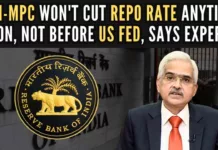
Sree Iyer
[dropcap color=”#008040″ boxed=”yes” boxed_radius=”8px” class=”” id=””]P[/dropcap]erhaps one of the most talked about item in the business channels and publications is the date on which the Fed will raise interest rates. Every good economic news is greeted with the forecast (from some wannabe-prescient pundits) that the rates will go up – by the way, they can be raised on any day of the year – it is just that FOMC (Federal Open Market Committee) meetings are the time when a formal call is taken and a reason given for the decision. Let us look at some of the factors that could be keeping the Fed from raising rates:
- China is bleeding money. More than $500 billion left the world’s second-largest economy in the first eight months of the year, roughly equivalent to Norway’s entire gross domestic product. The economic numbers that China puts out is taken with a pinch (more like a ton!) of salt as the ground data frequently does not match the figures. The fact that China downward revised the remnimbi is an implicit acceptance that all is not well in the Red Dragon Kingdom. Furthermore, China’s central bank spent an estimated $230 billion in July, August and September to support the currency, which contradicts Beijing’s stated aim of letting market forces play a bigger role in determining its value. This from a country which was about to make its currency float!
- Cash Sales of Homes fell to its lowest of 32% since 2008.

Details of all cash sales of homes over the past few years. Figure 1 shows the historical trend in cash sales share by sale type. Real estate-owned (REO) sales had the largest cash sales share in May 2015 at 56.1% and was the only sales category to see a year-over-year increase in the cash sales share. Resales had the next highest cash sales share at 31.5%, followed by short sales (30.1%) and newly constructed homes (14.7%). While the percentage of REO sales that were all-cash transactions remained high, REO transactions made up only 6.4% of all sales in May 2015. In January 2011 when the cash sales share was at its peak, REO sales made up 23.8% of total home sales. Resales typically make up the majority of home sales (about 82% in May 2015), and therefore have the biggest impact on the total cash sales share. Why is this important? Think about this – When was the last time an average American paid full amount for his/ her house? If it is not the Average Joe, who then is buying houses for cash? And what happens to them when interest rates rise?
- Producer Price Index (PPI) has been stubbornly low and the Fed is looking for a 2% rate of inflation before it starts raising rates. If rates do not rise this year, then the chances that they will rise next year are slim because it is an election year! While commodity prices have not risen and Oil has been low, there has been a huge asset inflation in the US, which is not being accounted for.
It would be a miracle if the US holds away from doing another Quantitative Easing because there are just no levers left to move.
Views expressed are pesonal.
- Indian Parliament’s Special Session is convened to mark the shifting to new Parliament building - September 3, 2023
- Why did Rajat Sharma of India TV not declare that Adani owns more than 16% shares in his channel? - January 29, 2023
- Prannoy Roy to get Rs.605 crore from Adani as per Stock Exchange filing. Why is Income Tax not acting on Roys’ dues of over Rs.800 crore? - January 4, 2023










